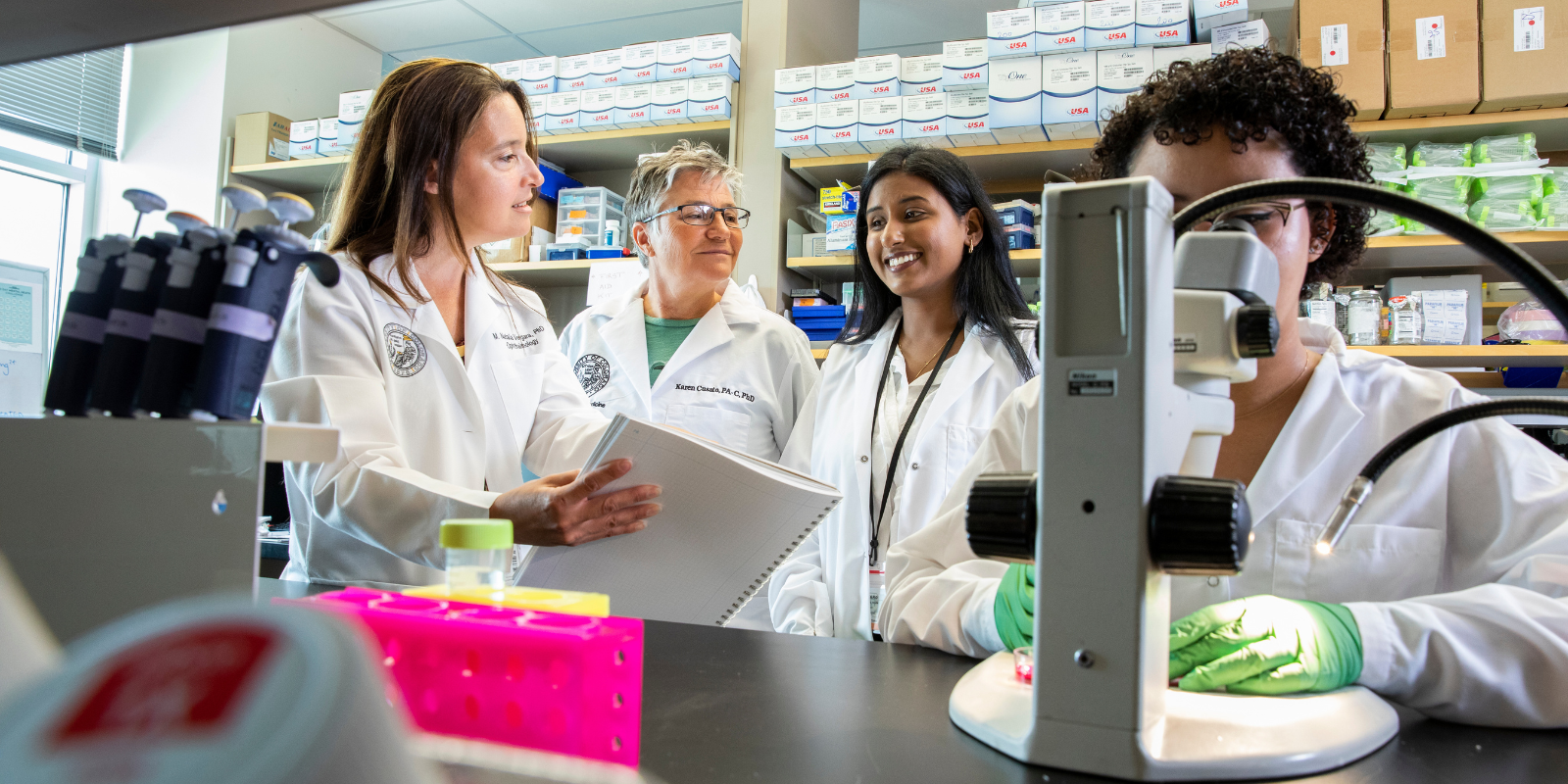Ocular problems stemming from environmental factors appear to be significant, says Malik Y. Kahook, MD, vice chair of translational research and the Slater Family Endowed Chair in the Department of Ophthalmology at the University of Colorado School of Medicine. He served as senior author on a global review published in Reviews on Environmental Health that focused on the effects of climate change and air pollution on eye health.
“Climate change impacts all aspects of life and has significant implications for the health of humans around the globe,” Kahook explains. “Eye health is a significant determinant of quality of life, and we were interested in evaluating how climate change influences vision health.”
The literature review of more than 2,000 studies delved into environmental effects ranging from pollutants and particulate matter in the air to precipitation, temperature, and relative humidity. Eye conditions researched included cataracts, uveitis, glaucoma, and retinal conditions. Ocular surface conditions such as dry eye and conjunctivitis were found to be most adversely affected by climate change.
Some of the environmental factors affecting eye health are obvious, according to Kahook, such as wildfires leading to increased particulate matter in the air, which then causes ocular surface issues. Other environmental factors, while not as obvious are nevertheless concerning, such as small particulate matter in the air causing cardiovascular problems, in turn leading to a possible increase in macular degeneration and glaucoma in specific geographic areas.
“What surprised me slightly is that climate change likely will influence other aspects of eye care like health care delivery,” Kahook says. “For instance, we have seen access to care decreasing as a result of floods damaging roadways or climate change-induced migration leading to loss of access to skilled caregivers. This is something we will tackle in future studies.”
Kahook will continue those studies with co-authors Jennifer Patnaik, PhD, assistant professor of ophthalmology at the Sue Anschutz-Rodgers Eye Center, and Saif Aldeen Alryalat, MD.
Kahook says that proper eye care in a changing environment should prompt special attention to ocular surface issues like dryness, irritation, and blurry vision caused by particulate matter in the air.
“This includes use of artificial tears when needed as well as potentially accessing air purifiers in areas of high air pollution or when wildfires or similar events increase the number of small particulate matter in the air,” Kahook says. “We still don’t fully understand many of the implications of climate change on the eye, and we continue to study this subject so we can properly instruct patients on how to avoid complications and downstream eye problems.”
Another finding of the research was the reciprocal relationship between climate change and health care delivery.
“As clinicians, we need to be aware of the impact we have on the environment,” he adds. “Our surgeries lead to a significant amount of waste and high use of energy with downstream effects on the environment. We need to adopt techniques and habits that safeguard against waste and enhance efficiency of our procedures. We continue to study these issues and have been looking at ways to learn from other industries on how we can be better stewards for the environment, while still providing the best care possible for our patients.”
Note: Please use the following citation to view the full publication ahead of print. Alryalat SA, Toubasi AA, Patnaik JL, Kahook MY. The impact of air pollution and climate change on eye health: a global review. Rev Environ Health. 2022 Dec 29. doi: 10.1515/reveh-2022-0209.



.png)
